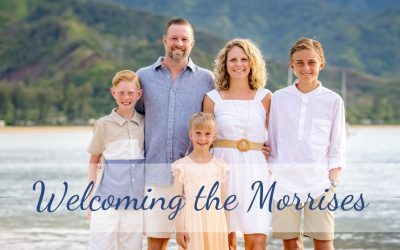We’re all aware of recently publicized comments about homeschoolers – that they cost the public schools money, teachers’ jobs, and the ability to provide quality school programs. Part of the concern from some public school officials centers on the increasing growth of homeschooling, and the old accusation that many homeschoolers are just trying to avoid truancy charges or are students who simply do not want to comply with their teachers.
What solutions do we hear proposed? Increase homeschool regulation. Make it harder for some to start homeschooling. Make it harder for others to keep homeschooling. Our hope, however, is that they will consider a better way.
As we head into the 2020 legislative session, I’d like to provide some answers to the concerns that have been raised.
First, the validity of the stated growth in homeschooling is questionable. While speaking before the House Education Committee in 2016, I shared that there were 11,080 WV homeschool students in West Virginia according to the WVDOE. But in our recent meeting with the State Superintendent, that number was reported to have risen to 18,583. Based on the national rate of homeschool growth over the past several years, this does not seem possible, for it would represent nearly a 70% increase in just four years. Therefore, we requested a county-by-county review to determine the actual number of children for whom a Notice of Intent has been filed. Before expressing concerns about how homeschooling growth affects the school system, accurate numbers are an absolute necessity.
Ultimately though, an increase of homeschoolers is not justification for an increase in homeschool regulation. There is no constitutional limit to the number of students that can opt out of the public school system. As stated previously, if the public school wants to reduce the number of students who can opt out of the public school system, they must develop ways that encourage students to want to stay.
Indeed, public school systems around the nation are recognizing that the way that education is delivered is changing. However, eliminating the choice to leave a system that doesn’t work for every child isn’t a fair or reasonable solution. Neither is attacking parents’ rights to choose the best educational approach for their own children.
Virtual school is one way that the public (i.e., government) school system in recent years has sought to accomplish that. The state legislature has sought to provide other options such as charter schools, but West Virginia teachers’ unions have fought these innovations vigorously. Nearly 3 million students attend charter schools nationally, with an average of nearly 6 percent in any given state. (Over 15% of Arizona public school students attend charter schools.)
Indeed, public school systems around the nation are recognizing that the way that education is delivered is changing. If they want students who are already in their system to remain in their system, they’ll need to be innovative enough to keep them.
However, eliminating the choice to leave a system that doesn’t work for every child isn’t a fair or reasonable solution. Neither is attacking parents’ rights to choose the best educational approach for their own children. Thankfully, that attack has not proven successful over the past 25 years. Still, legislators often need to be reminded that home educators are also Americans with rights which are protected by our U.S. Constitution’s Bill of Rights. It’s likewise valuable to remind them that we are willing and able to make our case on that basis.
What about those families who may claim to homeschool but don’t actually teach their children? Laws already exist against educational neglect in West Virginia, and there are procedures in place to investigate those who are thought to be guilty of it. Some counties may need to improve their record-keeping and follow-up procedures to stay abreast of violations of the laws already in place. Certainly, if someone is violating the law, then he or she should be held accountable. However, according to our Constitution, Americans are considered innocent until proven guilty. A prejudice or professional bias against homeschooling is not a sufficient reason to prevent parents from doing what they know to be best for their children.
While all of this is true, the fact remains that homeschooling in West Virginia is under attack. A conversation has begun, and we must choose to step up and make our voice heard. If we remain silent, the ones who speak up and speak the loudest may be thought to be right.
Christian Home Educators of West Virginia is thankful for the freedoms we have to homeschool in West Virginia – the freedom to choose a better way. Our Heavenly Father has protected those freedoms thus far. We look forward to His care as we prepare to defend our right to homeschool at the West Virginia State Capitol this January.




Recent Comments